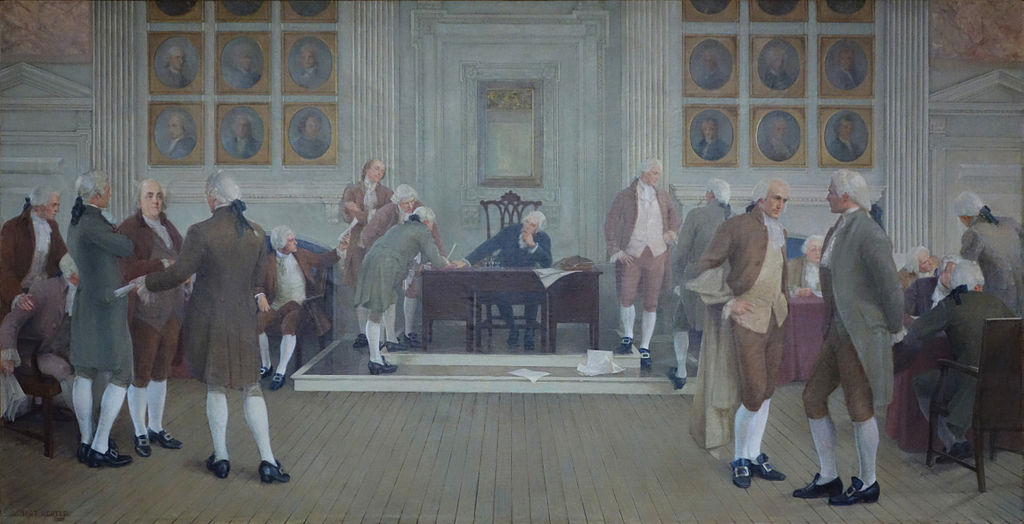
ADVERTISEMENT - CONTINUE READING BELOW
12. The delegates at the Constitutional Convention were not as enamored of the Iroquois Confederation
With very few exceptions, which includes George Washington, the men who gathered in Philadelphia to amend the Articles of Confederation in 1787 were educated in classics. Several spoke and read ancient Greek and Latin. They were well-versed in the history of classical antiquity, the democracies of the Greek city-states, the Roman Republic, and others. Over half of the delegates were trained lawyers, most owned considerable property, and a full three quarters had served in the Continental or Confederation Congress. Notably absent was Thomas Jefferson, then serving in France. The 55 men who took part in the convention did not all sign the resulting Constitution, just 39 did. Those who abstained did so for diverse reasons, among them the absence of a Bill of Rights. They referred to the classics, the law, the British Parliament, and even mythology during their debates.
One of their first actions was to elect George Washington to preside over the convention. He accepted, and then for the most part removed himself from formal debates. They also decided their proceedings would be conducted in secrecy. Formal minutes of discussions were not recorded, posterity was left to consider the notes taken by the framers when studying the actions of the convention. James Madison’s notes remain the most in-depth record of the convention, and they were not published until 1836, following his death that year. To enforce the secret nature of the discussions, the windows of the Pennsylvania State House, now known as Independence Hall, were kept shut. The delegates considered, argued, proposed, debated, and contended in sweltering heat throughout the long summer. What they produced was far removed from the Great Law of the Iroquois which governed their confederation.

